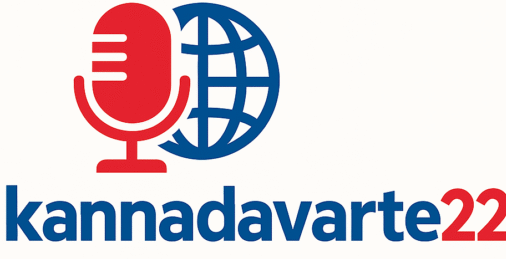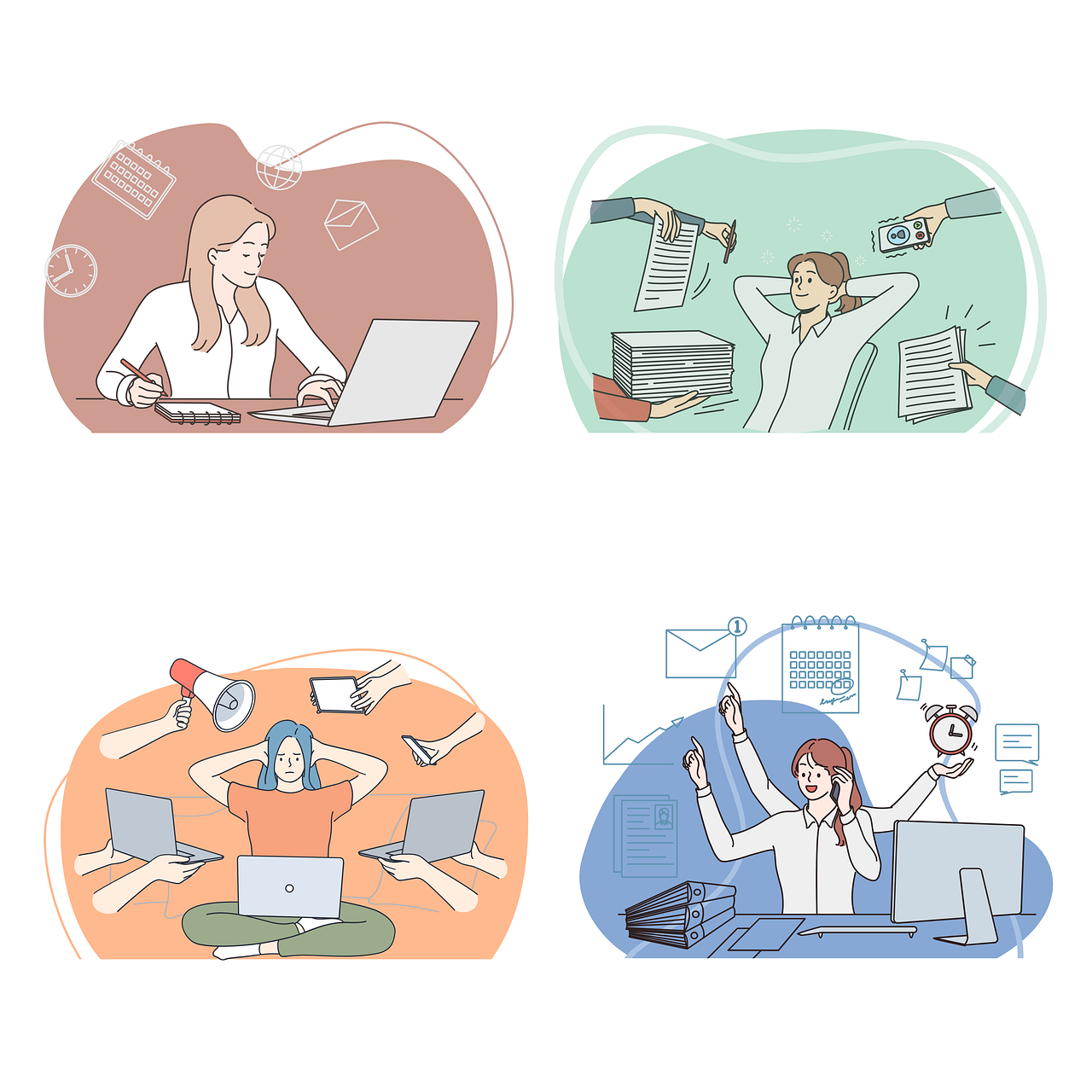In today’s digital age, we’re constantly bombarded with emails, social media updates, breaking news, WhatsApp messages, and endless notifications. This flood of information is called Information Overload — a modern productivity killer.
When your brain tries to process too much data at once, you feel mentally exhausted, anxious, and unable to make decisions. It’s like opening 50 tabs on your browser — everything slows down, including your brain.
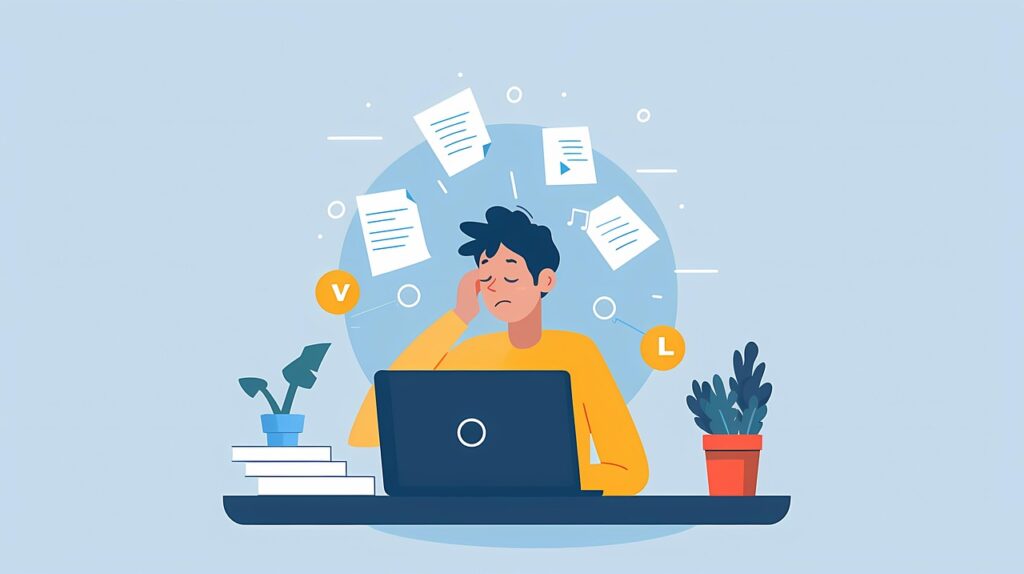
Signs You’re Facing Information Overload
- Constant distraction from your tasks
- Difficulty making decisions
- Feeling mentally tired without doing physical work
- Jumping from one tab or app to another
- Always feeling “busy” but not “productive”
If you relate to these, it’s time to fix it.
How Information Overload Destroys Productivity
- Reduces your focus span
- Increases stress and anxiety
- Delays decision-making
- Blocks creativity
- Affects memory and learning
Over time, it leads to burnout, low performance, and emotional fatigue.
7 Proven Ways to Overcome Information Overload
1. Practice Digital Minimalism
Declutter your digital space. Unsubscribe from unnecessary newsletters, unfollow irrelevant social media pages, and clean up your home screen.
2. Set Information Boundaries
Limit your daily information intake. For example, check news only once a day or use a 30-minute social media window.
3. Use the “One Tab” Rule
Focus on one task or open one tab at a time. Avoid multitasking — it divides attention and kills efficiency.
4. Schedule “No Info” Time
Create blocks in your day for deep work — no messages, no news, no browsing. Just focused execution.
5. Use Productivity Tools Wisely
Apps like Notion, Todoist, and Focus Mode help structure your workday and avoid chaos.
6. Curate, Don’t Consume Randomly
Follow only trusted content creators. Use platforms like Feedly to organize your reading material.
7. Take Mindful Breaks
Step away from screens regularly. A walk, some deep breathing, or just staring out the window helps refresh your brain.
Productivity Mindset Shift
Don’t confuse information gathering with action. Productivity isn’t about knowing more, it’s about doing better. Focus on executing your top 3 priorities instead of consuming 30 posts.
Scientific Studies on Information Overload and Its Impact on Productivity
Several global studies and research papers have confirmed that information overload is not just a buzzword — it’s a scientifically proven problem affecting workplace efficiency and individual productivity.
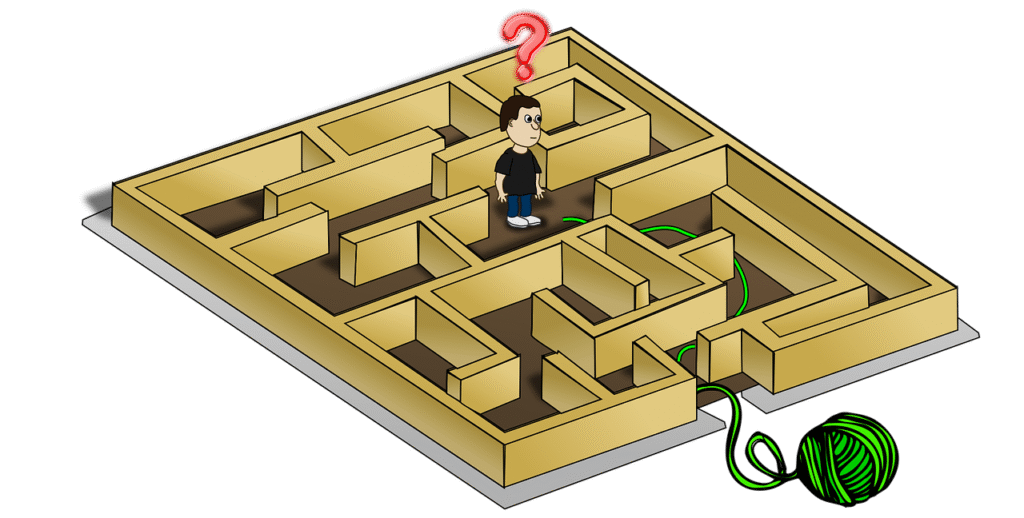
Also Read : Digital Distractions: The Silent Killer of Productivity
Microsoft Study (2023)
A recent Microsoft Work Trend Index report (2023) revealed that:
- 62% of global workers feel overwhelmed by the volume of digital information they consume daily.
- 48% of employees said that too many notifications and digital tools made it hard to focus and complete deep work.
- Employees who experienced information overload were 23% less productive compared to those with managed information flow.
The study concluded that “digital debt” is now a growing crisis — when the demands on our attention outpace our capacity to manage them effectively.
Harvard Business Review Findings
In a landmark article by the Harvard Business Review, researchers found that:
- People exposed to excessive information make poorer decisions and take longer to complete tasks.
- Productivity drops significantly when employees check emails more than 5 times an hour.
- High-performing professionals who limited their digital inputs and maintained a controlled info-diet were 20% more efficient.
This supports the theory that decision fatigue — caused by too much information — directly reduces our ability to solve problems and act quickly.
Cognitive Overload Research
According to cognitive psychologist John Sweller’s Cognitive Load Theory, our working memory has limited capacity. When that capacity is overwhelmed by too much data (especially irrelevant or low-priority info), our brain:
- Becomes slower in processing
- Misses important cues
- Fails to retain long-term information
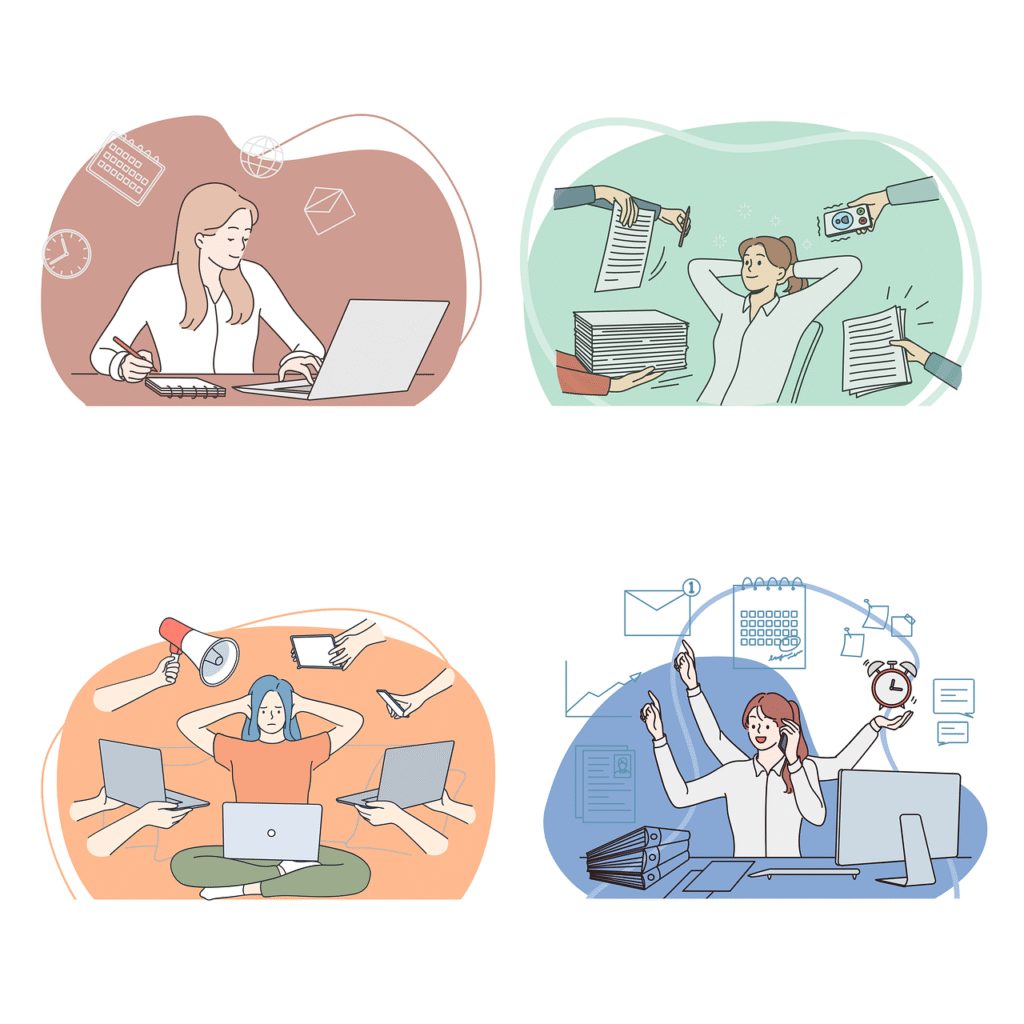
This leads to reduced comprehension, task-switching delays, and mental fatigue. In practical terms, a person flooded with excessive data is less likely to finish important tasks efficiently.
Corporate Impact Case Study
A study conducted by the International Data Corporation (IDC) showed that:
- 28% of a typical knowledge worker’s time is spent searching for information.
- Employees waste up to 2.5 hours per day trying to locate or manage the right data.
- Organizations lose millions of dollars annually due to inefficient information management.
This data-driven insight proves that tackling information overload is not just a personal choice but a strategic move for companies and professionals.
Final Thoughts
In a world drowning in information, the winners will be those who filter noise and focus on what matters. Be intentional with your inputs, guard your attention like treasure, and simplify your mental world.
By managing information overload effectively, you unlock real productivity — not just busyness.
